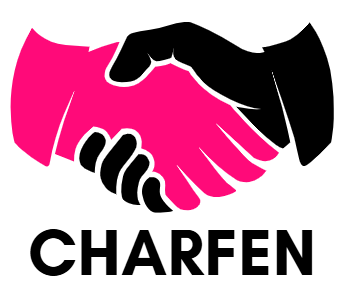Relationships aren’t always easy. Every couple faces challenges—miscommunication, emotional distance, unresolved conflict, or even loss of trust. When these problems start to feel overwhelming, couple counselling can offer a path forward. But what happens when only one partner is willing to seek help while the other refuses?
It’s a situation that many people find themselves in—and it can feel frustrating, lonely, and even hopeless. The good news is that you still have options. With patience, understanding, and the right guidance, it’s possible to make progress, even if your partner isn’t ready to join therapy right away.
1. Why a Partner Might Refuse Counselling
Before assuming your partner doesn’t care or isn’t invested in the relationship, it helps to understand the possible reasons behind their resistance. People avoid therapy for many reasons, such as:
- Stigma or pride: They may see counselling as a sign of weakness or failure.
- Fear of being blamed: Some worry the counsellor will take sides or make them feel guilty.
- Denial: They might not believe the relationship has serious problems.
- Past experiences: A negative experience with therapy in the past can create mistrust.
- Discomfort with vulnerability: Opening up emotionally can be difficult for those who struggle with expressing feelings.
Understanding these underlying fears can help you approach the topic more compassionately instead of turning it into another argument.
2. Start with an Honest and Calm Conversation
If your partner refuses counselling, avoid pushing or pleading—it often makes them more defensive. Instead, try expressing how you feel rather than what they’re doing wrong.
For example:
- Instead of saying, “You need therapy; you’re the problem,”
try saying, “I feel like we’ve been struggling lately, and I think counselling could help us reconnect.”
This shifts the focus from blame to teamwork. Emphasize that therapy isn’t about finding fault but about improving communication and understanding between both of you.
3. Consider Individual Counselling First
Even if your partner won’t attend, you can still start therapy on your own. Working with a counsellor individually can help you:
- Process your own emotions in a healthy way
- Learn communication strategies that may positively influence your partner
- Set personal boundaries and goals for the relationship
- Reduce stress and prevent resentment from building up
Sometimes, when one partner begins therapy, the other becomes curious after seeing the positive changes in attitude and behaviour. Your willingness to seek help may inspire them to reconsider their stance.
4. The Role of a Couple Counsellor
A couple counsellor plays a neutral, supportive role in helping partners understand each other and work through conflict in a structured and respectful way.
When both partners eventually attend North Van counselling, the therapist:
- Creates a safe space where both voices are heard without judgment
- Helps identify unhelpful communication patterns
- Teaches skills for conflict resolution, empathy, and active listening
- Encourages teamwork rather than competition within the relationship
Even if only one partner is attending initially, the counsellor can provide strategies for encouraging participation and maintaining emotional connection.
5. Don’t Try to “Convince”—Invite Instead
Instead of trying to convince your partner to go to counselling, invite them to join you. The difference in tone can make a big impact.
By framing it as an invitation, you give your partner the freedom to choose without feeling cornered. Many people are more open to trying counselling once they realize it’s not about judgment but about improving connection.
6. Focus on Small Changes at Home
Even without formal counselling, small shifts in your own behaviour can influence the relationship dynamic. Try to:
- Listen without interrupting during discussions.
- Express appreciation for things your partner does right.
- Avoid criticism or sarcasm, especially when discussing emotional topics.
- Model calm communication, even when tensions rise.
These small but consistent changes often reduce defensiveness, making your partner feel safer and more open to the idea of professional help in the future.
7. Know When to Set Boundaries
If you’ve tried everything—communicated calmly, sought individual therapy, and made genuine efforts—but your partner continues to refuse help or refuses to engage in resolving issues, it’s important to set clear emotional boundaries.
A couple counsellor can guide you through this process, helping you understand what’s healthy to tolerate and when it might be time to re-evaluate your relationship. Boundaries aren’t about punishment—they’re about self-respect and emotional well-being.
8. Hope and Healing Are Still Possible
Change doesn’t happen overnight, and not everyone moves at the same pace. It’s okay if your partner isn’t ready yet. The important thing is that you’re taking steps to heal and improve your relationship dynamics.
Many couples who start with one person in therapy eventually attend together once trust and openness begin to rebuild. With time, consistency, and compassion, professional couple counselling near me can help both partners see that it’s not about blame—it’s about growth and understanding.
Final Thoughts
When one partner refuses counselling, it can feel like an uphill battle—but you’re not powerless. Starting therapy on your own, leading by example, and maintaining open communication can gradually shift your partner’s perspective.
Remember, a couple counsellor isn’t there to judge or assign blame—they’re there to guide you both toward clarity, emotional healing, and healthier communication.
Even if your partner isn’t ready today, your courage to seek support is already the first step toward a stronger, more resilient relationship.












